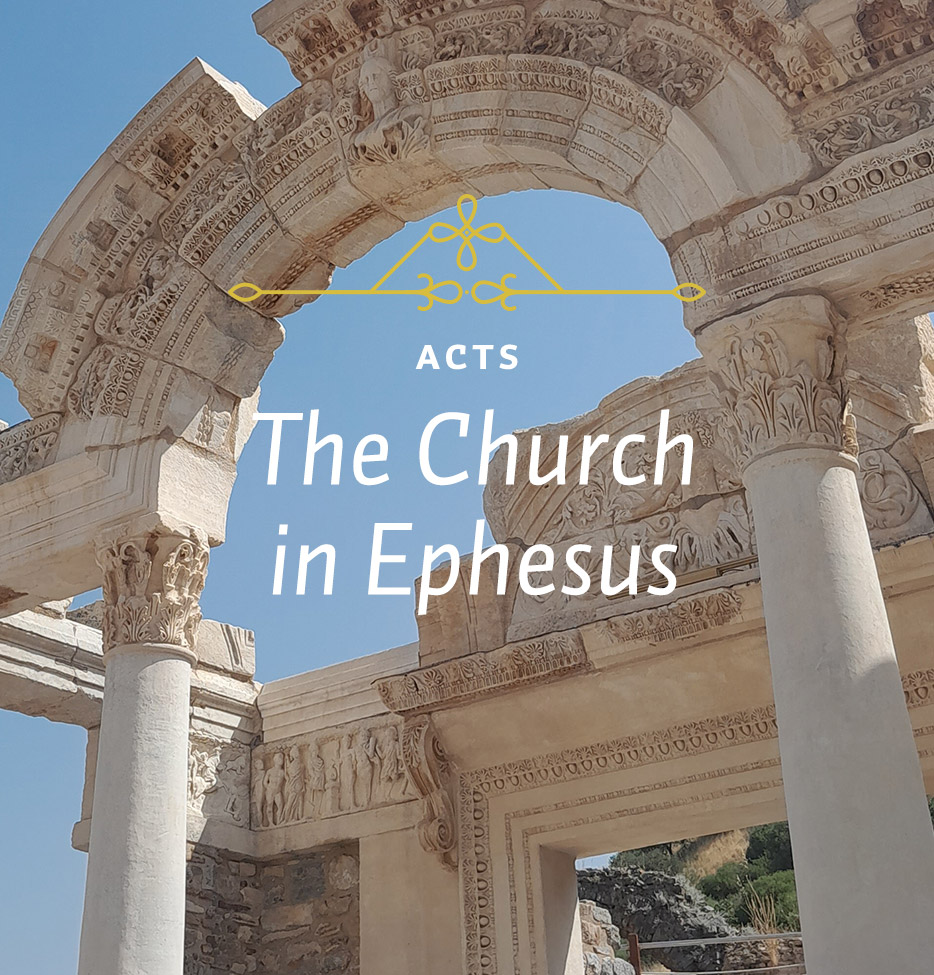We have seen how Paul appealed to the disciples of John the Baptist and the Jews. Let’s now note how he reached out to the Gentiles. We are told that when he left the synagogue, he went to the lecture hall of a man named Tyrannus. Tyrannus was a Greek, a philosopher no doubt, and he was a teacher because he had a school. The word translated “hall,” as in “the lecture hall of Tyrannus,” is literally the word “school.” Since there were times when his building was not being used, he leased it to Paul for Paul’s courses. Paul taught in this lecture hall, and the hall became a base for his ministry to whatever Gentiles would come.
At Ephesus Paul seems to have started a new ministry to those involved in the occult. Probably most of the Ephesians were involved in the occult in one way or another, because when the Spirit of God began to move in a really great way all seem to have turned from their occult practices.
Finally, toward the end of the chapter, we find the impact of the Gospel upon the business class. One of the major businesses of this city was making statues and other votary objects for the temple of Diana, and this business was hurt by the “revival” that took place. No doubt there were other groups of people who were affected. But here, in this very short account, Luke indicates what Paul accomplished by the impact of his teaching on these five groups of people.
3. Paul taught for a considerable length of time. Paul also taught for a long period of time. This was the direction in which he had been moving, as I pointed out in an earlier study. He had been staying longer and longer in the cities. When he was at Corinth, he was there for a year-and-a-half. Now we are told that he stayed in Ephesus for two years. For a man who was an itinerant missionary, who felt his calling to be the advancing of the Gospel throughout the entire Roman world, that was a major commitment of time. It would be the equivalent of many more years, perhaps a lifetime, for you or me.
There is an interesting note in some of the Greek texts of Acts at this point. It is not in the majority of manuscripts, so it is not included in our translations, no doubt rightly so. But in some texts, in the margin, there is a note that says that when Paul lectured daily in the hall of Tyrannus, he did so from “eleven o’clock in the morning until four in the afternoon” (from the fifth to the tenth hour). That is an interesting note. For one thing, the hours were in the middle of the day. This was the hot time of the day when presumably the hall was not being used by Tyrannus. Tyrannus would be there in the morning and perhaps in the evening as well. Paul would have said, “Could I use your hall in the middle of the day?” It was a convenient, creative and effective strategy.
A second interesting thing is that five hours a day add up to a lot of teaching. In terms of that culture, daily meant every day. No one took vacations then. No one had ever heard of a five-day work week or a forty-hour work week. So Paul would have taught five hours a day, seven or at least six days a week, if he took time off for different kinds of work on Sunday. In two years that adds up to 1500 to 1800 hours of teaching—more solid teaching than most seminarians receive in a three-year academic program, preparing them for the pastorate.
We learn something else from this, too. Later on (in chapter 20), where Paul is speaking to the Ephesian elders, he says that he supported himself while he was in Ephesus. This must mean that in the morning, when other people were working, Paul was working at his tents. Then at eleven o’clock, when others knocked off for lunch and a rest, he went over to the hall of Tyrannus and began to lecture. Paul also said in speaking to the Ephesian elders that he went from house to house, instructing them in the things of God. So we may suppose that when the hall was taken over again by the owner, at four o’clock, Paul started off to teach in homes, doing what is called in some forms of church polity “catechizing”—that is, teaching the mothers, fathers and children the things of God.






